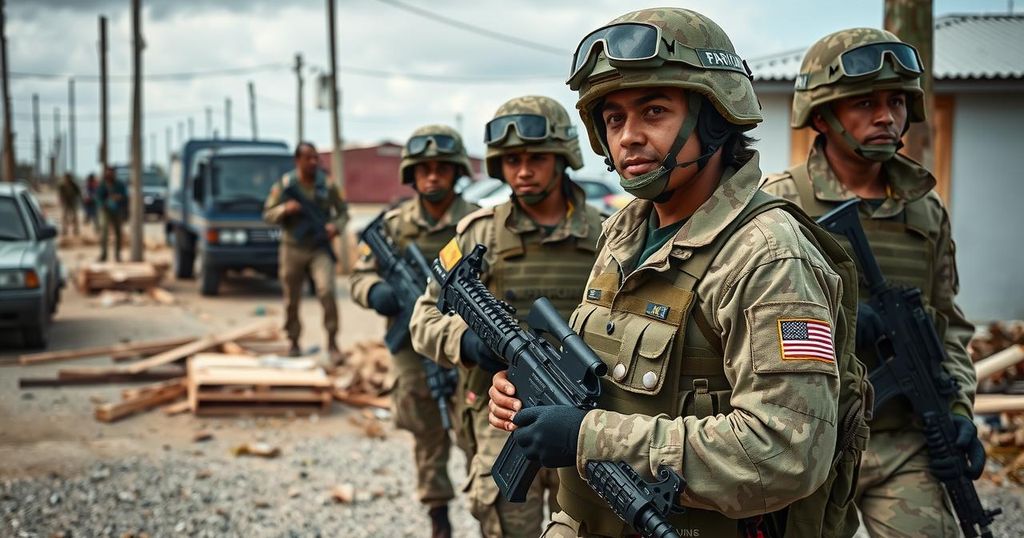Guatemalan and Salvadoran troops have arrived in Haiti amid claims of escalating violence, part of a United Nations-backed effort to restore order. However, this military intervention is criticized as a continuation of foreign dominance, with Haitian people facing dire economic and environmental challenges. Amidst systemic exploitation, resistance to foreign control grows, echoing longstanding calls for true self-determination and democratic governance.
Guatemala and El Salvador have recently deployed troops to Haiti, following a United Nations Security Council meeting which was aimed at strengthening international presence in the country. Assistant Secretary-General Miroslav Jenča characterized the situation in Haiti as increasingly dire due to “gang violence,” while dismissing the historical causes of instability, which are rooted in foreign interventions and systemic inequities. The arrival of Guatemalan and Salvadoran troops on January 3 is portrayed as an effort to restore order, yet it raises concerns about the legitimacy and effectiveness of foreign military intervention.
This military escalation was marked by a grand reception at the Port-au-Prince International Airport, with Haitian leaders and U.S. officials presenting the troops as allies of the Haitian populace. Yet, this so-called partnership is perceived by many Haitians as invasive and unwelcomed, exacerbating the long-standing patterns of exploitation and neocolonialism since the nation’s independence. The pervasive economic crisis has led to grotesque disparities in living conditions, as the prices of essential goods soar while average wages stagnate at abhorrently low levels.
Environmental disasters have further complicated the humanitarian crisis, as devastating floods engulf parts of the country, displacing thousands and contributing to an already struggling agricultural sector. Deportations of Haitian workers from the Dominican Republic compound these issues, underscoring the plight faced by many. Amid this turmoil, Haitian voices continue to rise in unison against foreign domination, echoing the long-deferred aspirations for democratic governance and national sovereignty.
Despite the oppressive environment, Haitian communities remain steadfast in their calls for self-determination, demanding an end to the U.S./UN-supported transitional government that perpetuates the cycle of poverty and intervention. Inspired by revolutionary figures like Jean-Jacques Dessalines, Haitians are determined in their struggle against both economic exploitation and military occupation. The commitment to resist remains resolute: “Anba Kapitalis” or “Down with capitalism, in Haiti and everywhere else!”
The current intervention in Haiti by troops from Guatemala and El Salvador is framed within a historical context of foreign military occupation, dating back to Haiti’s colonial past. Following years of political instability and economic hardship, the UN and the U.S. have sought to stabilize the nation through external military support. However, critics argue that such interference often dismisses the root causes of chaos, including systemic inequities and the legacy of colonization. Despite previous claims of seeking to establish democratic governance, ongoing international involvement often prioritizes foreign interests over Haitian self-determination.
In conclusion, the arrival of foreign troops in Haiti, particularly from Guatemala and El Salvador, represents a continued trend of external military intervention in the nation. While framed as a response to escalating violence, such actions are rooted in a larger history of neocolonialism that has persistently undermined Haiti’s autonomy. The increasing cost of living and environmental crises in Haiti call for urgent action, yet the Haitian people continue to advocate for genuine democracy and respect for their sovereignty. There is a collective demand for an end to these foreign occupations, alongside a heartfelt call for solidarity with the struggle for dignity and self-determination.
Original Source: www.liberationnews.org






